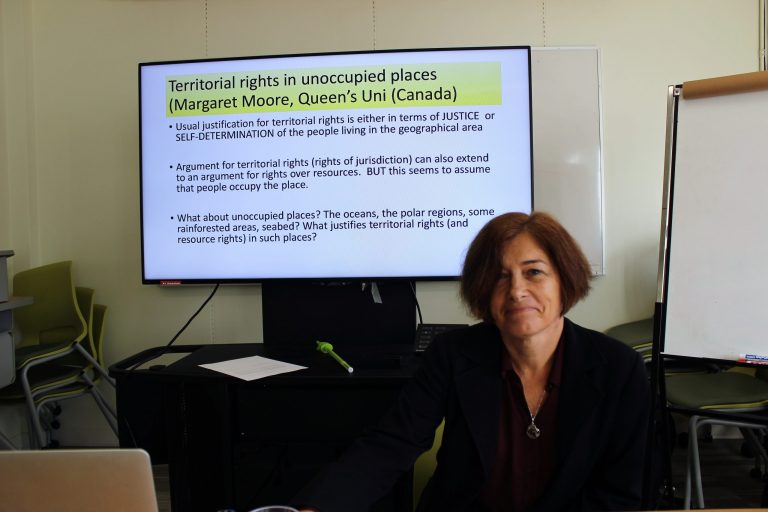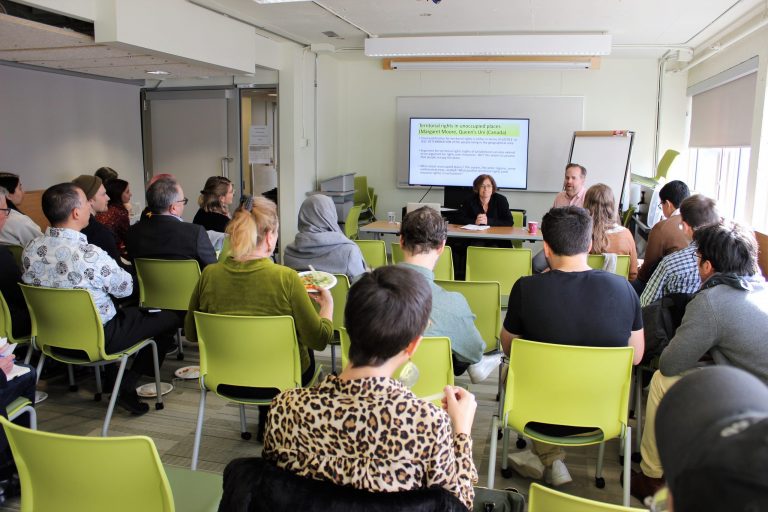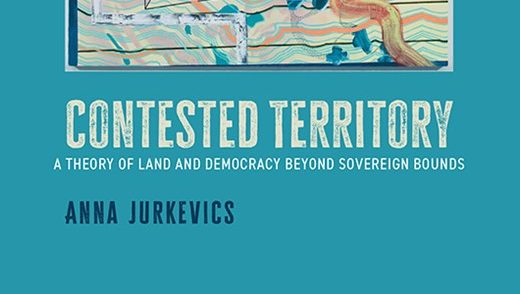

Bio: Margaret Moore is Professor in the Political Studies department at Queen’s, and Director of the Centre for the Study of Democracy and Diversity there. She is the author of four books, including A Political Theory of Territory, which won the Canadian Philosophical Association’s Best book prize, and four edited volumes, with major university presses, and many refereed articles and book chapters, including in Journal of Political Philosophy, Political Theory, Ethics & International Affairs, Political Studies, Philosophical Studies, and, most recently, Canadian Journal of Philosophy. She is also a Fellow of the Royal Society of Canada.
Abstract: There is a recent burgeoning literature justifying collective rights over territory (rights of jurisdiction, rights to control resources, rights to control borders and so on), and also the limits of such rights. Many of these justifications appeal to the idea of place-related interests, which work well in places that are occupied by individuals and groups. But what could justify such rights in unoccupied places? What kinds of rights ought there to be in places that are unoccupied? Is it a libertarian free-for-all? If some kind of entity is justified to regulate or enforce rules in such places, what kind of entity is it and on what basis is it justified? What are its limits, and how should it be related to the existing international order, which is largely comprised of territorial states?





